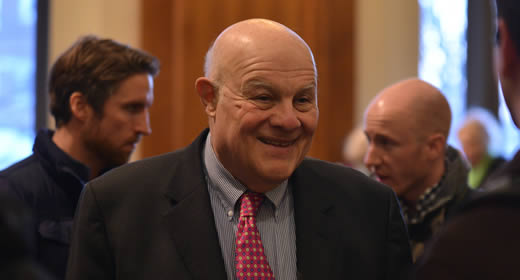
Melvyn Levitsky analyzes the dynamics of Brazil’s voting populace in Christina Silva’s October 3 International Business Times piece, “Brazil Recession Drives Heated Election Between President Dilma Rousseff, Marina Silva.” Levitsky believes the election’s outcome rests on one question: “Are [Brazilians] going to see Marina Silva as someone who can do a better job than Dilma?”
Christina Silva writes that as recently as late August, Marina Silva was estimated to earn 50 percent of the vote and the presidency as a result. However, Dilma Rousseff has enjoyed a resurgence in the past month and is expected to at least force a runoff election, which is required if one candidate does not capture an outright majority. Although Brazil is in the midst of economic trouble, Levitsky argues the country’s continued low unemployment has helped assuage frustration with Rousseff’s governance.
Levitsky also contends Rousseff’s association with Luiz Inácio Lula da Silva, her predecessor who led Brazil’s economic renaissance, benefits her positively: “He still helps her a lot ... He is just a beloved figure, particularly among the lower classes and the middle classes. If they come out to vote, they are going to go basically for his person.”
With no definitive result to the election expected from Sunday’s first vote, the runoff is scheduled for October 26. Only then is Levitsky’s initial question likely to be answered.
Melvyn Levitsky is Professor of International Policy and Practice at the University of Michigan’s Gerald R. Ford School of Public Policy. He is also Senior Fellow of the School’s International Policy Center and a member of the University of Michigan’s Substance Abuse Research Center (UMSARC) and a Faculty Associate of the University's Center for Russian and East European Studies (CREES) and of the Weiser Center for Emerging Democracies.